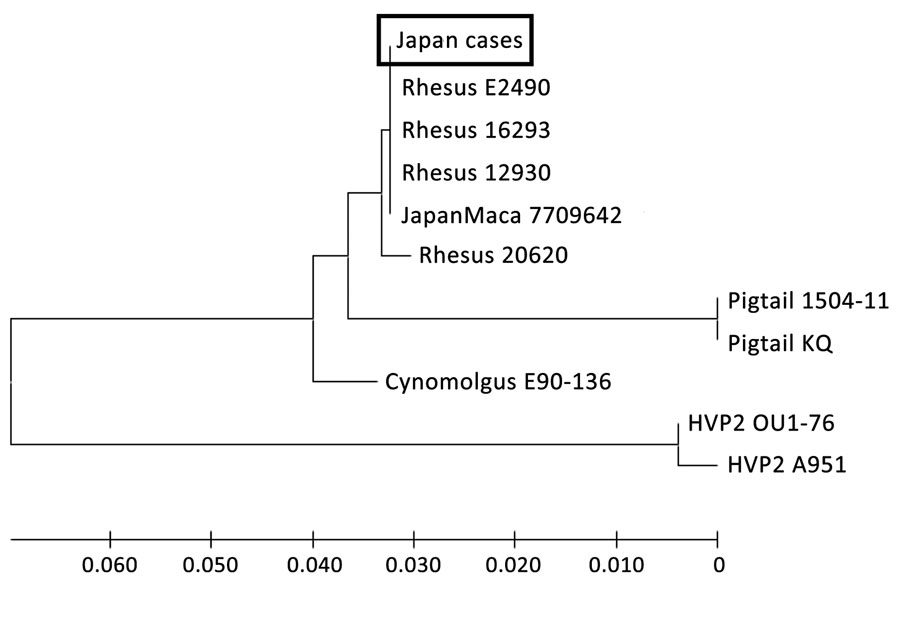Volume 30, Number 1—January 2024
Dispatch
Macacine alphaherpesvirus 1 (B Virus) Infection in Humans, Japan, 2019
Figure 2

Figure 2. Phylogenetic tree of Macacine alphaherpesvirus 1 (herpes B virus) gB gene in 2 patients with B virus infection, Japan, 2019. Nucleotide sequences of the herpes-specific PCR products (364 bp) from the 2 patients were aligned with the corresponding region of the B virus gB gene from GenBank (accession no. LC637778 for virus from patient 1 and LC637779 for virus from patient 2). Phylogenetic tree with HVP2 as an outgroup constructed using the neighbor-joining method. Scale bar indicates number of nucleotide substitutions per site. HVP2, herpesvirus papio 2.
Page created: November 02, 2023
Page updated: December 20, 2023
Page reviewed: December 20, 2023
The conclusions, findings, and opinions expressed by authors contributing to this journal do not necessarily reflect the official position of the U.S. Department of Health and Human Services, the Public Health Service, the Centers for Disease Control and Prevention, or the authors' affiliated institutions. Use of trade names is for identification only and does not imply endorsement by any of the groups named above.